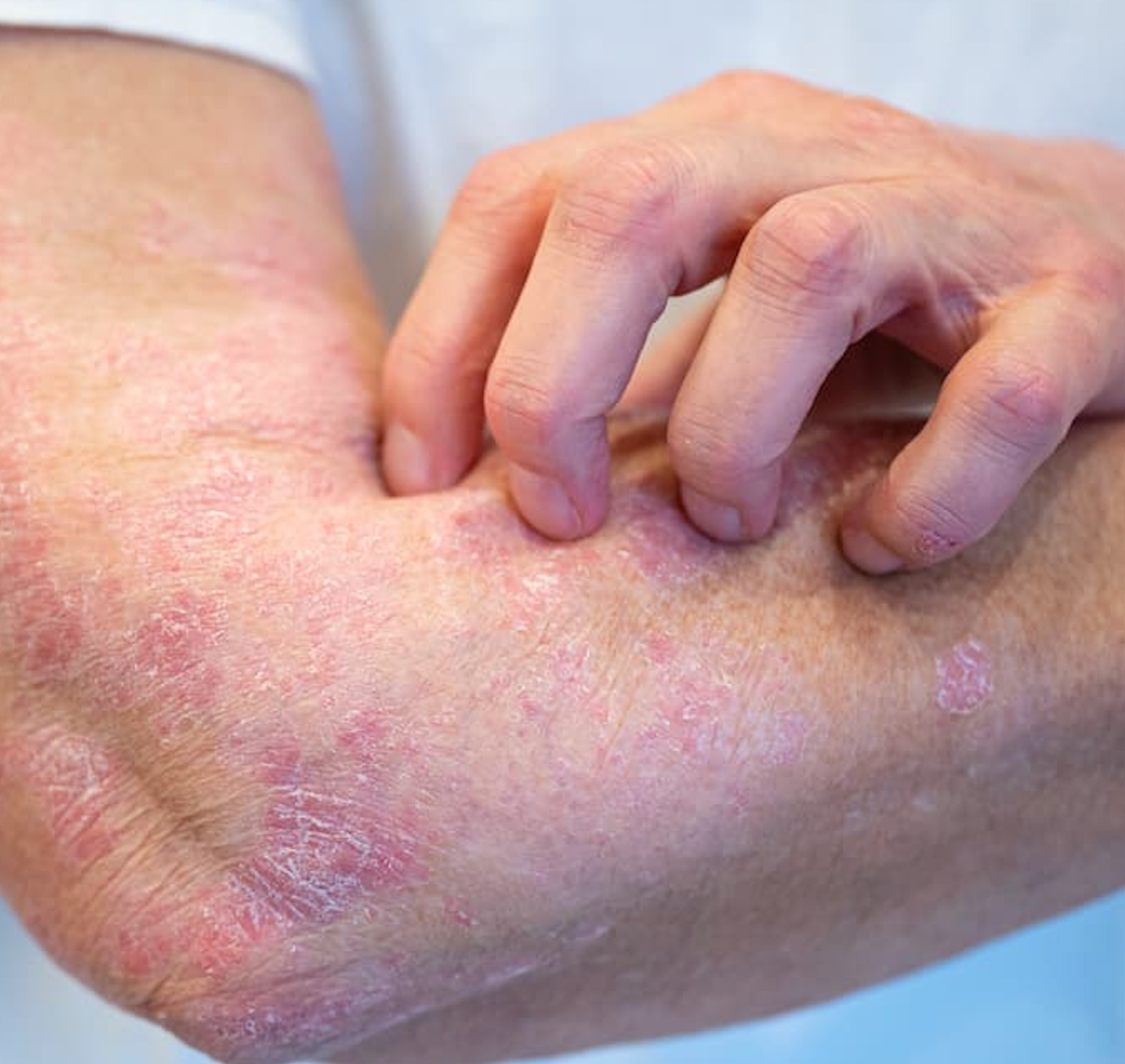Patients with newly diagnosed psoriatic disease may be at a significantly higher risk of developing incident autoimmune diseases, according to a study published in Scientific Reports.1
Common comorbidities of psoriatic disease include obesity, metabolic syndrome, liver diseases, chronic kidney diseases, cardiovascular diseases, mental health conditions, and malignancies. In fact, psoriasis has been independently linked to myocardial infarction. In addition to the condition itself, the treatment of the disease may also impact the cardiovascular system, as conventional systemic treatments have been shown to increase the risk of major adverse cardiovascular events.2
Key Highlights
- The autoimmune aspect of psoriatic disease, including the presence of autoreactive T cells, has been suggested, but its association with autoimmune diseases has not been consistently reported in previous studies.
- Patients with psoriatic disease had a significantly higher risk of developing various autoimmune diseases, including rheumatoid arthritis, systemic lupus erythematosus, ankylosing spondylitis, Crohn's disease, ulcerative colitis, alopecia areata, and type 1 diabetes.
- The risk of developing these autoimmune diseases remained significantly higher in patients with psoriatic disease after adjusting for comorbidities, insurance type, and other factors.
- Disease severity also played a role, with patients having moderate-to-severe psoriatic disease facing a higher risk of certain autoimmune diseases like type 1 diabetes, rheumatoid arthritis, and ankylosing spondylitis.
- The study indicates a potential shared autoimmune-related pathomechanism between psoriatic disease and autoimmune diseases, highlighting the need for further research and understanding in this area.
“Existing evidence also indicates the autoimmune aspect of psoriatic disease,” wrote a group of Korean investigators. “Specifically, the presence of autoreactive T cells has been suggested. However, the association between psoriatic disease and autoimmune diseases has not been consistently reported in previous studies.”
Investigators determined this risk in patients newly diagnosed with psoriatic disease, as well as age- and sex-matched controls, using information from the Korean National Health Insurance Service (NHIS) database between January 2007 and December 2019. The database, which has health-related information on 98% of people living in the Republic of Korea, contains data on services received, prescription records, International Classification of Diseases 10th Revision (ICD-10) code-based diagnosis, sociodemographics, and income-based insurance type. Patients were classified as having a comorbidity if they had ≥2 visits with the corresponding diagnostic code within 1 year.
In total, 321,354 patients with psoriatic disease and 321,354 controls were evaluated. The mean age of subjects was 43.05 years, and 58.9% were male. When compared with controls, more patients with psoriatic disease were receiving medical aid.
Patients with psoriatic disease had a significantly higher risk of developing a variety of autoimmune diseases, as indicated by the Charlson Comorbidity Index (CCI). These included rheumatoid arthritis (adjusted hazard ratio [aHR], 1.63; 95% confidence interval [CI] 1.52–1.76), systemic lupus erythematosus (aHR, 1.86; 95% CI 1.34–2.57), ankylosing spondylitis (aHR, 2.32; 95% CI 1.95–2.77), Crohn’s disease (aHR, 1.95; 95% CI 1.42–2.67), ulcerative colitis (aHR, 1.65; 95% CI 1.39–1.96), alopecia areata (aHR, 1.41; 95% CI 1.35–1.46), and type 1 diabetes (aHR, 1.23; 95% CI 1.11–1.37). The risk of Hasimoto’s disease, Graves’ disease, systemic sclerosis, and Sjögren’s syndrome were comparable among groups.
After adjusting for CCI, comorbidities, and insurance type, the risk of developing an autoimmune disease was still significantly higher in the psoriatic disease cohort compared with controls. With the exception of type 1 diabetes, the risk of incident autoimmune disease was significantly higher in patients with psoriatic disease regardless of sex. Additionally, the risk of developing an autoimmune disease was comparable in both younger (<40 years) and older (≥40 years) patients in the psoriatic disease cohort compared with controls, with the exception of Crohn’s disease.
Regarding disease severity, after adjusting for age, sex, insurance type, and CCI, the risk of developing type 1 diabetes (aHR, 1.22; 95% CI 1.04–1.44), rheumatoid arthritis (aHR, 1.53; 95% CI 1.39–1.70), and ankylosing spondylitis (aHR, 1.52; 95% CI 1.23–1.87) was significantly higher in patients with moderate-to-severe disease compared with those with mild disease.
Investigators noted the inherent diagnostic inaccuracies due to using administrative data. Additionally, a limited number of autoimmune diseases were included in the analysis and psoriatic severity was indirectly determined using prescription data. Future research should focus on the generalizability of these results.
“In comparison with the findings of previous studies based on prevalent cases of psoriatic disease, the results of the current study strongly indicated a shared autoimmune-related pathomechanism between psoriatic disease and autoimmune diseases,” investigators concluded.
References
- Jung JM, Kim YJ, Lee WJ, Won CH, Lee MW, Chang SE. Risk of incident autoimmune diseases in patients with newly diagnosed psoriatic disease: a nationwide population-based study. Sci Rep. 2023;13(1):16738. Published 2023 Oct 5. doi:10.1038/s41598-023-43778-4
- Hong, J. R. et al. The potential impact of systemic anti-inflammatory therapies in psoriasis on major adverse cardiovascular events: A Korean nationwide cohort study. Sci. Rep. 11, 8588 (2021).






